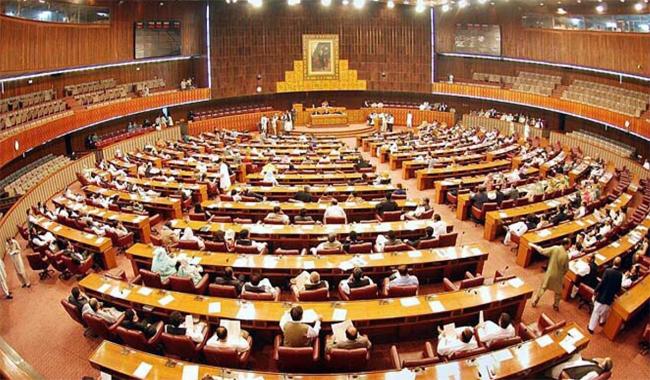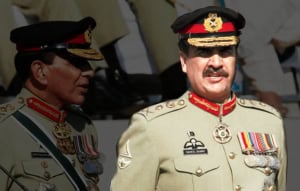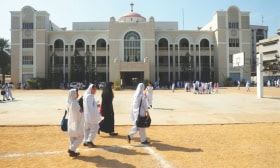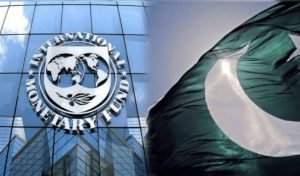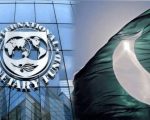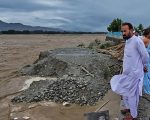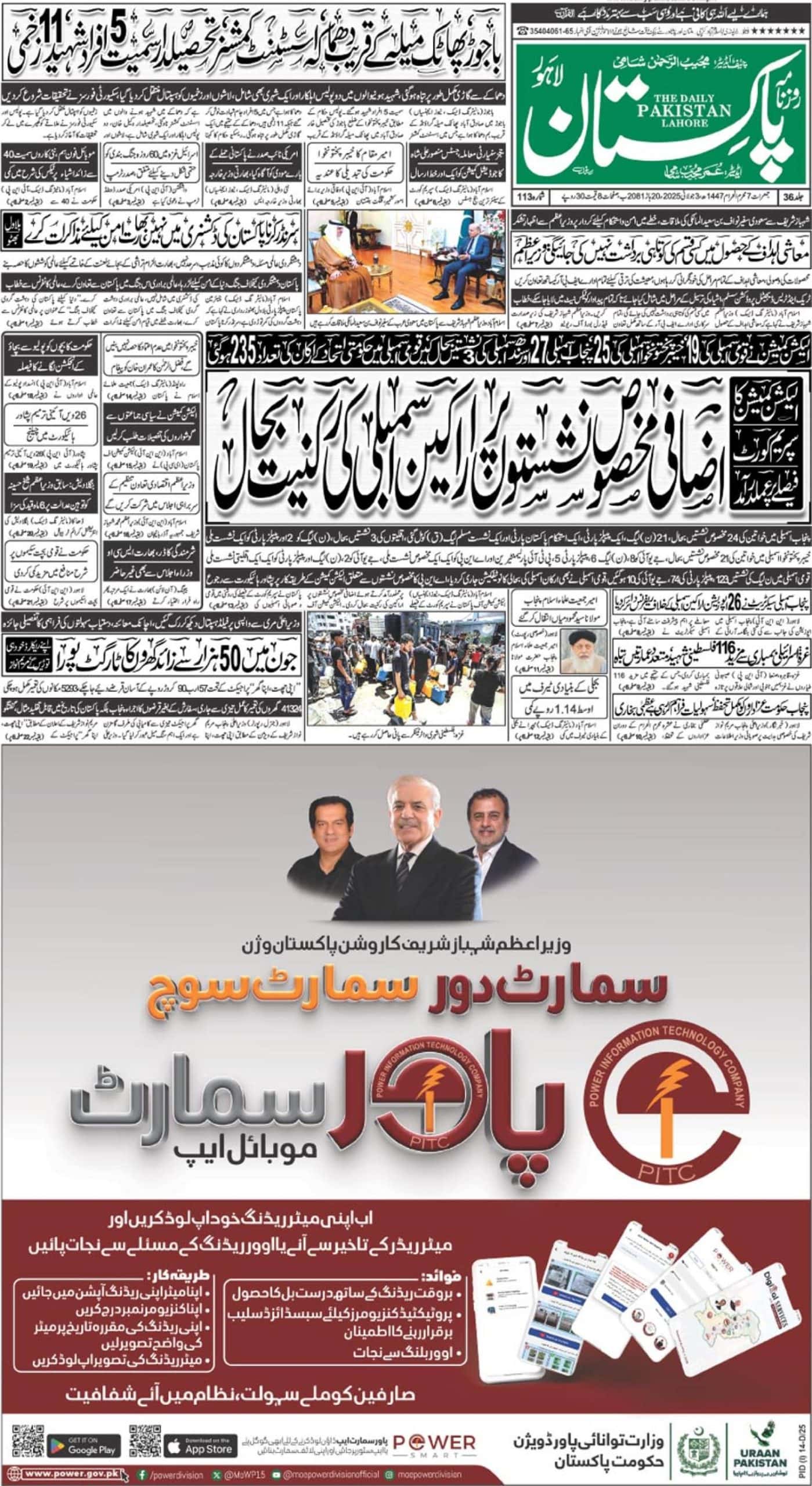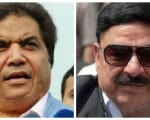Pakistan’s pace of political evolution (if not ‘perversion’) has attained strange heights. While the talk of political will or lack of political will has gone into hibernation, there is too much of loose, wild talk about ‘Idaron ka ehtaram’ , ”Idaron ka tasaddum’ etc etc. (In English, ‘dignity of institutions’ & ‘clash of institutions’).
This loose talk has blinded the public perception so much so that even the wisest of men are unable to unearth the ‘underground’ moves or undercurrents. Now, every other person is so much immersed in misconceptions and propaganda bombardment/ advertisements that he has almost forgotten that there existed an institution by the name of parliament or the prime minister’s office.
The lopsided debates have put these two institutions, which, in fact, are one and the same (institution), on the backburner. The general impression formed is that it is obligatory upon every Pakistani to give respect and honour to national institutions barring the parliament or the prime minister’s office perhaps for the reason that most of the times, a good few parliamentarians, and the political chief executives have remained engaged in amassing wealth and building up colossal assets in foreign lands at the cost of nation’s growth and prosperity.
However, if one looks at the things purely objectively, the overly bad repute of the parliament/parliamentarians seems to be more of a propaganda unleashed by vested interests to achieve certain set targets which don’t sit well with national solidarity, as if all the depravity that prevails, owes only to the parliamentarians’ overall conduct, all others treading the puritanical path of purity. It is a factual falsity to think this way to give the blanket label to one of truthfulness and trustworthiness and simultaneously paint a black picture of others with the help of ‘scientific’ propaganda tools that are being used quite dexterously so as to make one appear as good and the other as evil.
Obviously- rather logically- if the Ehtesab of bigwigs and responsible ones of this prime institution of the people and people’s will, namely the parliament, is to be carried out by powers outside (if not, above) the parliament as against the standard and unchallenged practice of other state institutions using ‘internal accountability’ mechanisms, the things lose the lustre of transparency and fairness.
It is encouraging that two important institutions of our country which too are at the helm of affairs with unbreakable authority have strong and foolproof accountability mechanisms operating within their own fold but ‘accountability by people from other institutions instead of sympathetic and somewhat ‘friendly’ people from one’s own institution’ is a far more just and fair mechanism which also suits the requirements of ‘separation of powers’ as fully supported and emphasized by Pakistan’s top judiciary with extra stress on a system of ‘checks and balances’.
The very term ‘checks and balances’ loses its meaning if the aberrations in one institution are not addressed by the other top institution/s of the state.
People at the grass-roots level most often complain that if they lodge a complaint against the excesses committed by administration, police and revenue officials of lower or higher scales, the complaints are usually forwarded to the same wrongdoer officials who, in turn, become revengeful and make things more miserable for the complainants. If efficacious remedy or relief is desired, then the wrongdoer functionaries must not be probed and questioned by their own authorities whose work should be limited to preliminary investigation, the final investigation to be conducted by officials and authorities not manning or serving the departments against whom complaints have been lodged.
There are some people who debate this theory. They normally plead that how can a corrupt revenue officer be probed by other institutions whose officials are not conversant with revenue practices and laws? The answer to this is that the law of the land is very comprehensive and provides the basic framework, guidelines, and sets of information. Equipped with this framework, the investigators can go ahead with a fair and comprehensive probe which will become more impartial if people or officials of the ‘same ilk’ are not deputed to look into the malpractices of their own colleagues or juniors.
At the highest level of the state or inter-institution balance among the three pillars of the state, the things don’t remain so much technical because the question to be addressed is that nexuses between any two pillars of the state or unbridled and unchecked ‘Azadi’ (unbridled, unchecked autonomy) of one or two pillars do not destabilize the other institution on any pretext, whatever the veracity of that pretext.
Pakistan is a country that has evolved. Most of us believe that in this process of ‘socio-political evolution’ we have attained much awareness but despite all this progress, we are still stuck in debates that are devoid of reason. We speedily jump over to conclusions as in the case of one of the former prime ministers, Mian Nawaz Sharif who is blamed by his opponents for treading the path of conflict with institutions. While no support to any convict is intended, the question still arises that when we accuse Sharif of disrespecting the institutions we forget to analyze what we are indirectly putting the blame on other institutions that they (the latter) act only in retaliation or aggression. This is rather like showing disrespect for institutions other than the parliament. The critics of this category must not paint other national institutions as reactionary forces. Moreover, it must always be borne in mind that parliament and thus the prime minister’s office is in itself an institution of the state as much dignified as other national institutions, particularly because the parliament is the main repository of public trust and it is always the public which is always right.
